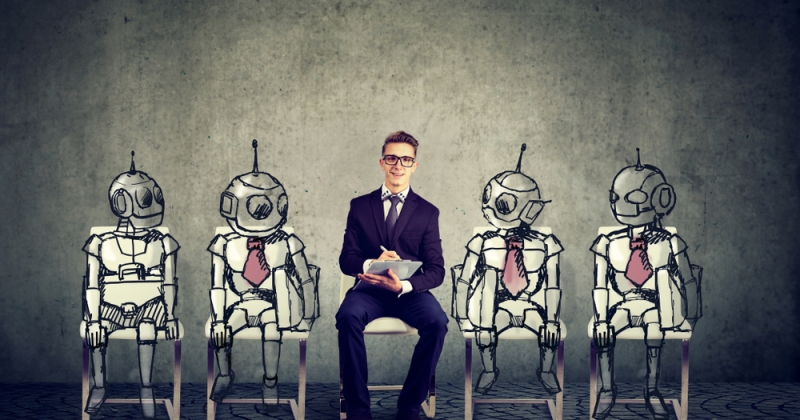#The2040Economy : in my opinion, every business, charity, school, government department, etc needs to harness appropriate data for their organisation as soon as possible and extract value from it, or it will be overtaken by competitors who do.
And we (society across the whole planet) need to prepare for a new economy in which very few work.
Think about it: how will your children (or grandchildren) cope in a world where the economy doesn’t need them to work? How will society as a whole finance support for them?

Some form of universal basic income will be needed, that is paid to everyone who is not in work. How will these people (remember: likely to be you, or your children or grandchildren) afford to have somewhere to live, to pay for food, water, energy, transport, healthcare and other insurance, and access to the internet/data? How will they occupy themselves with dignity (and I hope a lot of fun?).
We need to start thinking about this now, so that we can make the transition to the new future economy without major social disruption.
We could, and should, be able to make this transition one to a world of plenty, full of fun and leisure. Because #AI and #robots are likely to be massively more productive than humans, so the potential for economic growth and quality of life should be huge. Quantum computers (which will be hundreds of millions of times faster than the best current computers) will enhance this effect.
But if we get it wrong, we will be condemning hundreds of millions, if not billions of our loved ones, to a world of riots, mass poverty and homelessness.
The professions should lead the thinking
I think the professions (including my own, actuaries (*), but of course also accountants and other finance professionals, statisticians and of course economists) have a major role to play here because of their skills, but above all because of their mandate to act in the public interest. Unlike governments which are subject to the very short-term election lifecycle of a handful of years, the professions have the resources and the luxury to think long term. Except that in this situation, I don’t believe that it can be called a luxury: it is a necessity that we, global human society, get this right.
Let’s start preparing for this new world now.
Note *: I am a member of the Institute and Faculty of Actuaries. Actuaries have very significant expertise in finance, data and modelling but always with a public interest and business focus.
,


The world where most goods and services are produced by #robots and #ai *should* be a world of plenty, because they can work 24/7 365 days a year, and should be 100s of times more efficient and productive. So a #universalbasicincome of say $1,000 a year could well be the equivalent today of $100,000 a year.
(Consider today’s pcs: the cost of powerful laptop today is at £800 about 1/10th of the cost 20 years ago. And these laptops are at least 10 times – probably more like 20 to 30 times – more powerful. So when it comes to laptops, £1 today is worth at least £100 as compared to 20 years ago.)
LikeLike
An interesting video/article suggesting 21 new types of jobs that are likely to emerge over the next 10 years is at https://t.co/8j4MwytLLy. While I believe this sort of thing will happen, I also believe that these too are likely to be replaced over the period to 2040 by robots/AI.
LikeLike